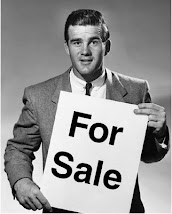When you're trying to explain what you do to other people whether in conversation, through the written word or as part of a proposal, remember that 'concrete is always good'.
I'm not talking about the noxious mix of cement, sand and lime used in building, obviously, but it's a useful metaphor as it's an almost ubiquitous building material that causes real damage to the environment if it's used unthinkingly. In speech, the opposite of concrete, abstraction, is a noxious mix of jargon, generalisation and the 'passive voice' that causes real damage to interest and understanding, when used unthinkingly. We hear it so much.
There's always a moment when someone asks a person, out of politeness, what they do. For many professionals it's a terrifying moment. There's often a pause to think and then the following occurs...
"We're a multi-faceted, global consulting business, working in the sales consulting and general marketing space, helping blue-chips and other expert service firms to regularise the quality of their inputs vis-a-vis human resource skills sets in business development and sales ...."
It's the kind of complex answer to a simple question that's, 'abstract' in the extreme. The kind of answer that leaves the audience asking themselves three questions-
- Who is this loony?
- What does it mean?
- Why did I bother, I was only being polite?
You hear it all of the time and you read it even more frequently in job advertisements, marketing materials and conversation, and very seldom does the audience really understand what it is that the other party is trying to say.
Abstraction is defined in the Oxford English Dictionary as "The act of considering something as a general quality or characteristic, apart from concrete realities, specific objects, or actual instances..." And the abstract doesn't help to show what you actually do because it's too general, devoid of examples or 'actual instances' of the effects that your product or services has on your customers' lives.
So if we look at the previous example it can be transformed, very easily into a concrete and simple sentence thus-
"Mine is a business that helps people to sell their products and services more effectively..."
Concrete, specific and short.






